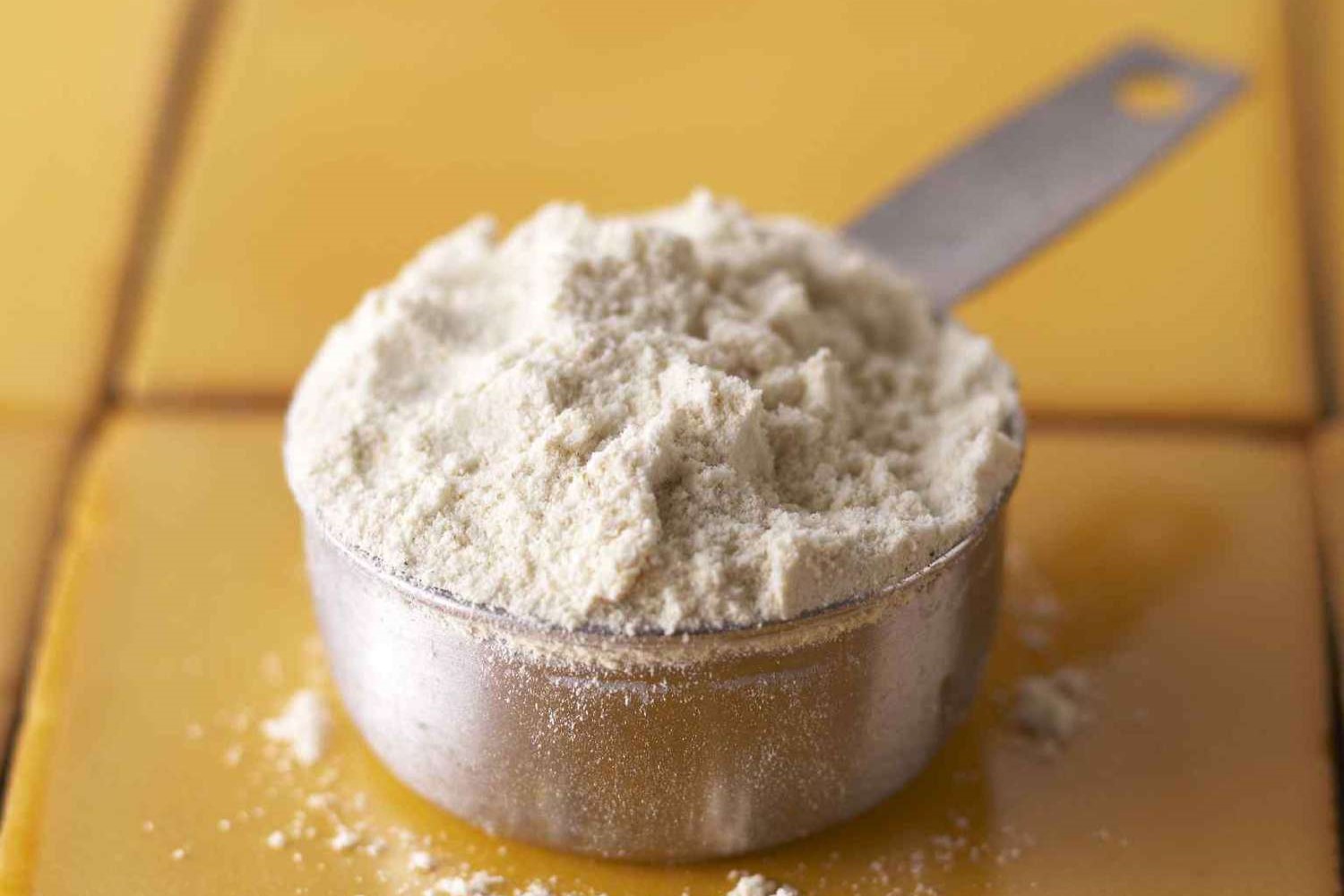
Masa harina is a versatile and nutritious ingredient that is widely used in Mexican cuisine. Made from dried corn that has been soaked in an alkaline solution, masa harina is ground into a fine flour that is perfect for making tortillas, tamales, and other traditional dishes. Not only does masa harina add a distinct flavor and texture to these dishes, but it also offers a range of nutritional benefits. In this article, we will explore 11 nutrition facts about masa harina that make it a healthy choice for those looking to incorporate more plant-based ingredients into their diet. From its high fiber content to its abundance of essential vitamins and minerals, masa harina is a nutritious addition to any kitchen.
Key Takeaways:
- Masa harina is a high-carb, fiber-rich, and gluten-free option that supports energy, digestion, and heart health. It’s versatile, nutrient-dense, and helps in weight management.
- Including masa harina in your diet can provide essential nutrients, promote fullness, and contribute to a balanced and healthy eating plan. It’s a tasty and beneficial addition to various recipes.
High in Carbohydrates
One of the main nutritional benefits of masa harina is its high carbohydrate content. Carbohydrates are a vital source of energy for the body, providing fuel for activities and bodily functions.
Good Source of Fiber
Masa harina is also a good source of dietary fiber. Fiber plays a crucial role in promoting healthy digestion and preventing constipation. Including masa harina in your diet can help you meet your daily fiber requirements.
Rich in B Vitamins
Masa harina contains various B vitamins such as thiamine, riboflavin, niacin, and folate. These vitamins are essential for energy metabolism, brain function, and maintaining overall health.
Contains Essential Minerals
Masa harina is a rich source of minerals such as iron, calcium, and phosphorus. Iron is important for oxygen transport in the body, calcium is essential for strong bones and teeth, and phosphorus plays a crucial role in cell growth and maintenance.
Gluten-Free Option
For individuals with gluten sensitivities or celiac disease, masa harina is a great alternative to wheat-based flours. It is naturally gluten-free, making it suitable for gluten-free baking and cooking.
Low in Fat and Sodium
Masa harina is relatively low in fat and sodium, which makes it a healthier choice for those watching their intake of these nutrients. It can be a better alternative to traditional wheat flours that tend to have higher levels of fat and sodium.
Versatile Ingredient
Masa harina is incredibly versatile and can be used in various recipes, from making traditional tortillas and tamales to thickening soups and stews. It adds a unique flavor and a touch of authenticity to many dishes.
Source of Plant-Based Protein
While not as high in protein as some other grains, masa harina still contributes to your daily protein intake. It contains plant-based protein, which is beneficial for vegetarians and those looking to incorporate more plant-based protein into their diet.
Helps in Weight Management
Due to its high fiber content, masa harina can promote a feeling of fullness, which can aid in weight management by reducing overeating and snacking between meals.
May Support Heart Health
Some studies suggest that masa harina, being a whole grain corn flour, may have positive effects on heart health. It may help reduce the risk of heart disease by lowering cholesterol levels and maintaining healthy blood pressure.
Nutrient-Dense Food Option
Masa harina is a nutrient-dense food, meaning it provides a good amount of essential nutrients while being relatively low in calories. It can be a valuable addition to a balanced and healthy diet.
In conclusion, masa harina offers several nutritional benefits, including being a good source of carbohydrates and dietary fiber. It is rich in B vitamins, minerals, and plant-based protein. Additionally, masa harina is gluten-free and low in fat and sodium. Its versatility in cooking makes it a popular choice for various dishes. Incorporating masa harina into your diet can contribute to overall health and well-being.
Conclusion
In conclusion, masa harina is a versatile and nutritious ingredient that can be used in a variety of dishes. It offers a range of health benefits, including being rich in fiber and essential nutrients like iron and B vitamins. Additionally, masa harina is gluten-free and has a low glycemic index, making it suitable for those with dietary restrictions or who want to maintain stable blood sugar levels.
Whether you’re making tortillas, tamales, or other traditional Mexican dishes, incorporating masa harina into your cooking can add a delicious and nutritious element to your meals. So go ahead and explore the many culinary possibilities with masa harina!
FAQs
1. What is masa harina?
Masa harina is a type of flour made from dried and ground corn kernels that have been soaked in limewater. It is commonly used in Mexican cuisine to make tortillas, tamales, and other traditional dishes.
2. Is masa harina gluten-free?
Yes, masa harina is gluten-free, as it is made from corn rather than grains that contain gluten, such as wheat, barley, or rye. It is an excellent alternative for individuals following a gluten-free diet.
3. What are the nutritional benefits of masa harina?
Masa harina is a good source of fiber, iron, and B vitamins, including thiamin, niacin, and folic acid. It also contains essential minerals like magnesium and zinc.
4. How can I incorporate masa harina into my cooking?
Masa harina can be used to make traditional Mexican dishes like tortillas, tamales, empanadas, and pupusas. It can also be incorporated into batters for pancakes, waffles, and bread. The possibilities are endless!
5. Is masa harina a healthy option?
Yes, masa harina can be a healthy option when used in moderation as part of a balanced diet. It is a whole grain and contains essential nutrients, but like any other food, portion control is key.
Was this page helpful?
Our commitment to delivering trustworthy and engaging content is at the heart of what we do. Each fact on our site is contributed by real users like you, bringing a wealth of diverse insights and information. To ensure the highest standards of accuracy and reliability, our dedicated editors meticulously review each submission. This process guarantees that the facts we share are not only fascinating but also credible. Trust in our commitment to quality and authenticity as you explore and learn with us.


